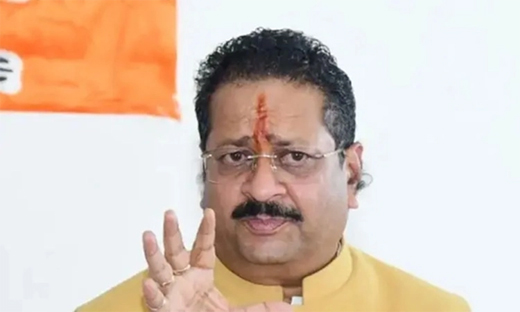
By The Wire Analysis
The Rashtriya Swayamsevak Sangh (RSS) hiring a top US lobbying firm, one which was also recently linked to Pakistan, has ignited fierce criticism and deep concern for a range of objective, evidence-backed reasons. RSS has denied the report but the evidence present in the official filings (LDA filings, lobbying disclosure documents and payment records of $330,000 paid to Squire Patton Boggs) in the United States is irrefutable. The pictures posted by the RSS on X with the lobbyists in India lend further weight to the proposition.
Here are seven reasons why this development about this unregistered Indian organisation – which was recently hailed by the prime minister as the world’s biggest NGO – should be viewed as alarming and potentially harmful to Indian interests, democracy and credibility.
Financial opacity betrays public trust
The RSS’s financial opacity, which is manifest in its undisclosed sources and unaccountable spending, betrays public trust and raises serious questions about the legitimacy of its transnational influence operations. The RSS is an unregistered body and does not formally publish its accounts or pay taxes as per its own admission. Funding a $330,000 US lobbying campaign without disclosure mechanisms raises critical questions: Where did the money originate? Are donors and members in India aware of these international expenses? While FARA (Foreign Agents Registration Act) requires some disclosure, the full extent of RSS financial networks, funding sources and spending remains opaque. Indians have no way to audit how much is spent, who benefits, or what commitments are made in their country’s name by an unregistered organisation. This opacity undermines public trust and accountability, especially when such transnational spending is justified with nationalistic pretensions.
Undermines Indian sovereignty
RSS’s actions directly erode India’s diplomatic sovereignty by blurring the distinction between official and extra-governmental advocacy abroad. Influence operations abroad by a domestic political or ideological organisation, especially by circumventing state diplomatic channels, dilute sovereign control over foreign policy messaging by the Indian state. India’s Ministry of External Affairs conducts official diplomacy. When non-governmental ideological organisations independently lobby foreign governments, it creates confusion about who speaks for India and can undermine carefully calibrated diplomatic positions. This dual-track approach weakens India’s institutional democracy and sends mixed signals to global partners about who actually sets India’s foreign and domestic priorities.
This story was originally published in thewire.in. Read the full story here.






